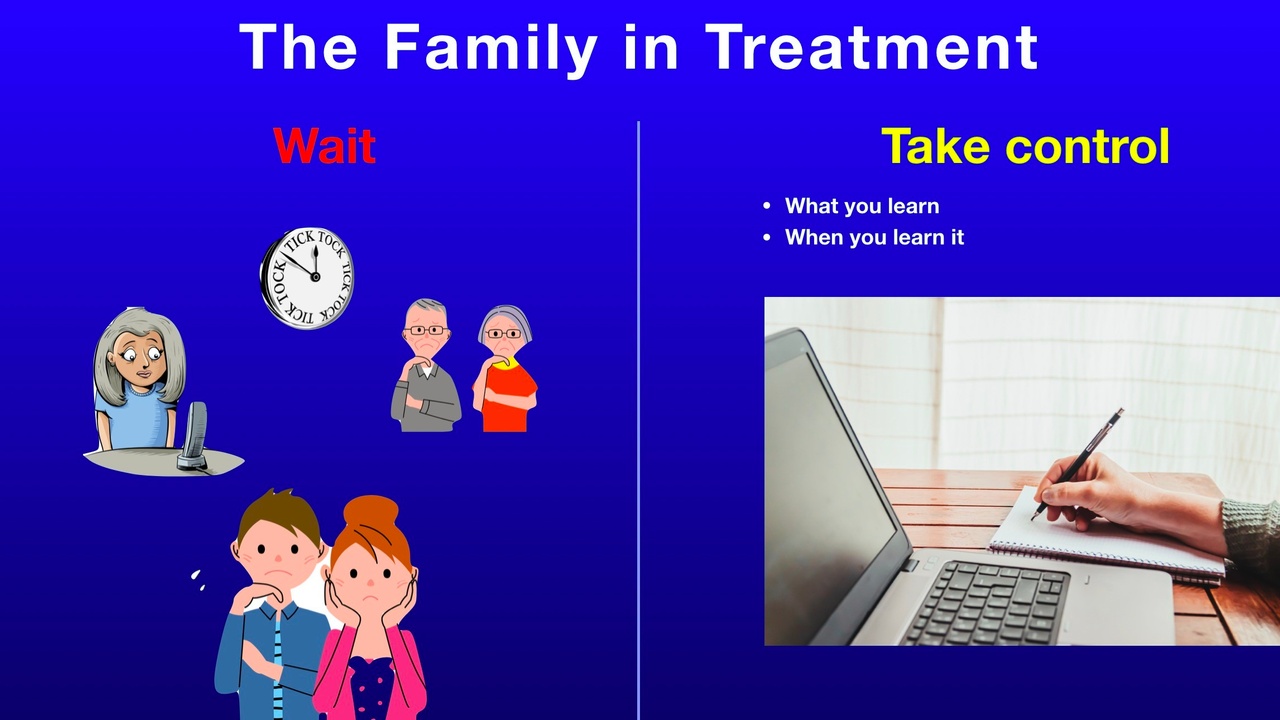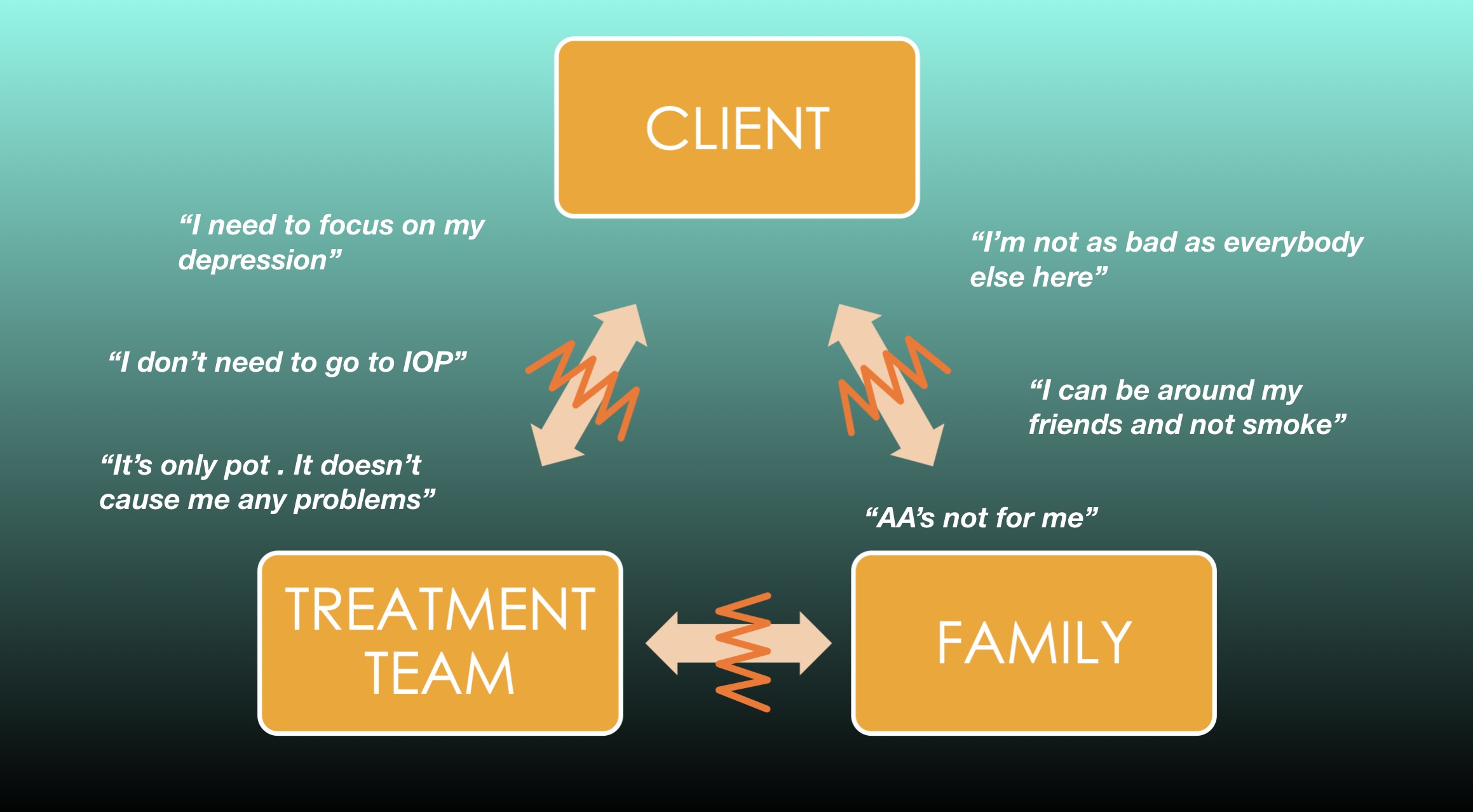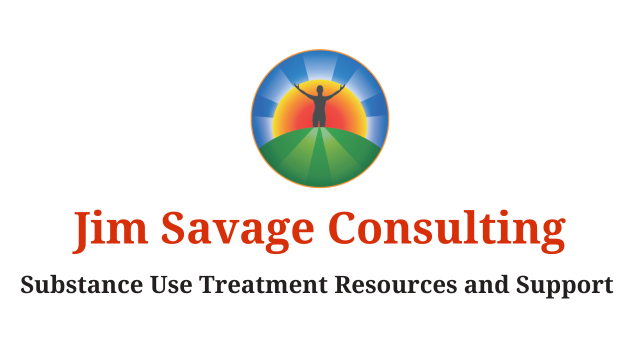
The other day I listened to a client talk about her experience of checking her husband into rehab:
"They said they would call. And I went home and waited. A week went by, nothing. I had no idea what was going on with his treatment. After a couple of weeks I finally called his counselor and asked him if there was anything I could be doing, or if there was anything he could give me to be learning about what I was supposed to be doing to support my husband."
On day 27 she attended a one-day "family program." On day 28 he was discharged.
Now I'm not sure if it's just the drug counselor in me, or if it's readily apparent to anyone reading this—but this is just plain wrong. When you consider how much money is spent on treatment (not to mention how important family participation is in treatment), experiences like this are just unacceptable.
Unfortunately, that's not the first time I've heard a story like this.
Here we had a client's wife who a) desperately wanted to participate in his treatment, b) felt inadequately prepared for supporting her husband's recovery, and c) got one day of family programming on the last day of the client's treatment. Again, all I can say is "unacceptable."
And this was at a treatment center that prides itself on having good family program.
The Family In Treatment
Now the first point I want to make clear is that many addiction treatment facilities do have excellent family programs. And many families have much better experiences than the one described above. But the fact is no matter how good the family program is, until we start checking families in along with the clients, there will always be an inherent gap between the client, the family, and the treatment team.
And these gaps are where important things fall through the cracks that ultimately lead to poor treatment outcomes.

As the illustration above points out, it's not necessarily the big stuff that leads to poor treatment outcomes. More often than not it's the little stuff that creates cracks in the foundation. But in this business little cracks can turn into big cracks—real quick.
For example, let's say a family's wondering if continuing to socialize with friends who use drugs or drink heavily is going to be a good idea for their loved one:
Family: "Do you think it's a good idea to hang around those friends of yours who smoke pot all the time?"
Client: "I can be around my friends and not smoke. It's not a problem."
Family (thinking to themselves): "Hmm. I wonder if that's true. Seems like it wouldn't be a good idea. But he sounds like he knows what he's talking about."
And they just leave it at that.
A fundamental element of most treatment plans is called a Relapse Prevention Plan. And one of the first things clients are asked to do for this is to identify what kind of lifestyle changes they will need to make in order reduce exposure to things that could make them think about using. And this often includes cutting off contact with friends who use.
The idea of "changing our playmates and our playgrounds" is a pretty common topic in addiction treatment, and most clients are going to be familiar with this. However, it's not uncommon for information presented to the clients in their education groups to sometimes get "lost in translation" as far as how the client relates this to the family in private conversations.
And this is where we see the gap—between the client, the family, and the treatment team.
Recovery By... Osmosis?
The "little thing" that's falling through the crack in this example is that the client was probably advised against hanging out with using friends. He doesn't like that idea, so he doesn't agree with it. When it comes time to discharge, the family is aware of this potential crack in his foundation, but instead of confronting this, they take the attitude of "He's not willing to give up his using friends. But hopefully he'll come around and see that's not a good idea."
"Hopefully he'll come around." Really???
Are we really going to hope that after a month or two of rebelling against well-informed treatment recommendations, they're going to somehow magically come around to complying with the treatment plan after they've left treatment?
And this goes for any of the statements included in the graphic above:
"She's definitely committed to her recovery, but she's not crazy about those AA meetings..."
"He agrees he needs to stop the meth and Xanax, but I don't think he really thinks that pot is a problem for him...."
"He says he can have a drink every once in a while..."
If we're brutally honest here, being afraid of challenging some of these cracks in the foundation is simply an extension of the power the substance user ends up holding over the rest of the family in the addictive family system. Rather than address the issue, the family (and sometimes the treatment staff) affirms them for any positive attitude they display, while secretly hoping that the rest will just fall into place by some sort of "recovery" kind of osmosis, I guess.
A better approach would be to address cracks in the foundation before they leave treatment.
3 Strategies For Bridging The Gap
The problem we see in the examples above arises from the simple fact that families aren't in treatment along with the client. And this creates what I refer to as the substitute teacher phenomenon: Clients in treatment are learning a lot more about addiction and recovery than the families are learning during this time. And here's a little treatment secret:
Clients don't always like some of the things they're learning in treatment.
But if they know... that the family doesn't know... what it is that they're learning... What do you think the chances are that they're going to run to the family and tell them?
"Hey! Guess what we learned in treatment today—I've got to stop hanging out with all my friends who use!
They might choose to keep that one to themselves. And the family ends up being like the substitute teacher who's sort of left out in the dark on some these things:
"Oh no, Mrs Johnson. Our regular teacher lets us do that all the time."

One the most important things we can do to improve treatment outcomes is to help the family stay out of the substitute teacher role by bridging the gap between the client, the family, and the treatment team. And this starts by simply making sure everybody's on the same page with regard to the treatment plan.
Here are 3 strategies families can use for bridging the gap and learning how to provide effective treatment support:
1. Become an "Educated Consumer"
The first step in bridging the gap is learning everything you possibly can about addiction and how addiction treatment works. In RehabWorks I call this becoming an "Educated Consumer." In other words, I want you to learn how to use the treatment "product" correctly. Because the truth is, most cases of failed treatment are result of what I would refer to as "user error." The message was delivered. The tools were delivered. But the client—and many times the family as well—didn't listen. And they say, "We tried rehab and it didn't work", when in fact the treatment "product" wasn't used correctly.
When you know exactly what the clients are learning in treatment, that takes you out of the role of the substitute teacher, and eliminates any ambiguity about treatment expectations.
2. Setting boundaries
The beauty of becoming an Educated Consumer is that it allows you to know what to expect as far as how treatment is going. And this puts you in the position of being able to set informed boundaries with regard to what's acceptable and what's not acceptable to you, and to step out of the dysfunctional dynamic that typically occurs in the family system when there is substance use issue.
3. Measuring treatment progress
Successful recovery is contingent on a solid foundation, and the primary phase of treatment is where that foundation must be established. However, it's not uncommon for treatment clients to think they're further along in the treatment process than they really are. By learning how the treatment process works (becoming an Educated Consumer!), treatment supporters are able to identify and address potential cracks in the foundation before the client leaves treatment. This is the key to avoiding some of the most common pitfalls that lead to poor treatment outcomes.
One tool that's particularly effective for gauging this process is called the Stages Of Change Model. This identifies the process anyone goes through when making the decision to change a problematic behavior. In most cases of treatment failure you can usually look back and see where the cracks were, relative to the client's progress through the Stages of Change. In RehabWorks I teach families how to use this as a specific tool for measuring treatment progress and making sure that a solid foundation is being built. (Learn more here)
Take Control Of Your Situation
The three strategies presented above are all things that:
1. You can start doing immediately.
2. Are absolutely the best thing you can be doing to give your loved one the best chance possible for treatment success.
3. Are all things that are totally within your control.
You don't have to wait for the counselor to call, or for your first family education session to begin taking a proactive role in your loved one's treatment. There is A LOT that families can be doing from the outset of treatment—before you even get started with the facility's family program! A quick google search for terms like "addiction" or "family recovery" will provide a vast amount of material for you to begin studying that can put you in the driver's seat as far as being an effective treatment supporter.
*** EDUCATED CONSUMER TIP! ***
Here are some suggestions for important topics you can start learning about right away. Google any of these terms and start becoming an Educated Consumer today!
- Substance Use Disorder (DSM5)
- ASAM Definition Of Addiction
- Stages Of Change
- Addiction and the family system
- Codependency
- Cross-addiction
- Relapse Prevention
- 12-Step recovery
- SMART Recovery
- Celebrate Recovery
- Refuge Recovery
******************************
If you have a loved one in treatment, you want to make every second count—because the clock is ticking and discharge will be here before you know it! Hopefully you won't have the kind of experience described at the beginning of this article, but even in less than ideal circumstances, there's plenty you can be doing to take control of what you learn and when you learn it. Becoming proactive in your loved one's treatment is how you begin to move from the pain and chaos of addiction to the peace of mind that comes with recovery. And that goes for the entire family.
RehabWorks is an online family education program that provides all the things families need to be effective treatment supporters in one convenient location, including live coaching support. LEARN MORE HERE > >
FREE eBOOK
Sobriety Doesn't Have To Suck!
A Guide To Finding Excitement, Renewal, And Spiritual Fulfillment In Recovery
Stay connected with news and updates!
Join our mailing list to receive news, resources, and updates.
Don't worry, your information will not be shared.
(We won't send spam. Unsubscribe at anytime.)

